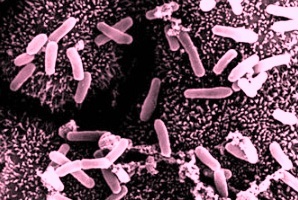Research: Necrotic enteritis in broilers

Australian scientist investigated the changes in the caecal microflora of chickens following a Clostridium perfringens challenge to induce necrotic enteritis.
Australian scientist investigated the changes in the caecal microflora of chickens following a Clostridium perfringens challenge to induce necrotic enteritis.
"*" indicates required fields

Notifications
Your Privacy Matters
It's your legal right to choose which information a website may store and have access to. With your permission, we and our third-party partners (18) store and/or access information on a device, such as unique identifiers in cookies and browsing data to collect and process personal data.
We and our partners do the following data processing:
Store and/or access information on a device, Advertising based on limited data and advertising measurement, Personalised content, content measurement, audience research, and services development
If you accept any or all of these, you will have agreed to this website's use of cookies for these purposes. You may also choose to refuse consent, but certain personalized features of the site won't be available to you.